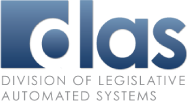Infrastructure Services
Data Center & Network
At the heart of the General Assembly’s information technology operation is its data center and supporting network infrastructure. DLAS has architected a high-speed, stable, and secure network infrastructure, complete with robust file and print services, and responsive desktop computing. DLAS constantly evaluates technology trends, providing solutions that satisfy immediate requirements, while ensuring that critical information is secure and accessible into the future.
We do internet
The future is the internet and DLAS has been doing it for a long time. DLAS first tapped into the power of the internet in 1996 and has been successfully delivering it to the desktop ever since. Wired and wireless, legislative agencies and the public can access the internet from the Capitol Square buildings and meeting venues. Legislative teleworkers utilize the DLAS network architecture to access computing resources through virtual private network (VPN) technology or use Web-enabled applications to work from wherever they are, whenever they want.
We do servers
Digital information produced by the legislative agencies needs to be accessible and available 24 hours a day, 7 days a week. The DLAS-maintained cluster of virtual servers are up and operational 98% of the time while delivering fast and secured data to the desktop. Daily backups and real-time hot site redundancy means that in the event of a local disaster, legislative information will never be unavailable for more than 48 hours.
We do desktop
The desktop is where it all happens. Legislative staff are in constant contact with the General Assembly community and need to capture information that documents the legislative process. DLAS enables desktop systems to carry out these tasks while providing customized configurations for specialized needs. Laptops are provided for staff to deploy in telework or disaster scenarios. Limited “cloud computing” is also available to cover interruptions in local service.
We do infrastructure
The physical network infrastructure connects all of the resources needed to communicate with colleagues and services, enforce security, and transmit information. DLAS is committed to providing the highest level of performance possible in a secure and flexible environment. Routers, switches, servers, firewalls, and other assorted appliances are configured with these goals in mind.
We do security
Virus protection, intrusion detection, eliminating spam, tracking phishing/scams and user authentication are all part of DLAS’ comprehensive IT security methodology. Protections against all forms of attacks, local computer viruses and malware are built in at every level of the architecture.
We deliver
Being responsible for the data center and network infrastructure needs of the General Assembly is serious business. No data loss occurred in 2009 due to power corruption or “crashed” systems. DLAS internet sites have over a million hits a week, and during the legislative session, live video is streamed to upwards of 1000 customers daily. Email and Voice over IP (VoIP) is critical in a time-sensitive environment and DLAS-maintained systems have remained solid and reliable. The legislative process demands a reliable and robust data center and network infrastructure. DLAS meets that challenge while adding value in the problem-solving process.
Enterprise Communication
Effective decision-making requires effective communication. DLAS provides a variety of communication services utilizing specialized software and hardware solutions that facilitate one-on-one and group interaction. Whether soliciting input through an online survey, facilitating a small group discussion forum, or scheduling meetings, DLAS has resources to make the connection happen.
We do email, calendars, and messaging
Effectively managing personal schedules is essential in the legislative environment. DLAS has the tools to help manage the myriad of events and meetings while staying in touch with colleagues and constituents. Because our email system is Web-based, staff can access their schedules and messages anytime, anywhere, without the need for special software or hardware configurations. Per seat cost and administrative overhead are also significantly reduced.
We do voice
DLAS has experience with VoIP (voice over IP) phone systems, traditional public switched networks, and mobile voice and data services. Voice messages can be directed to and viewed on mobile devices and PC email accounts. VoIP accounts are managed locally and provide a variety of features and capabilities. DLAS has the in-house expertise to procure, install, and configure VoIP and mobile phone services.
We do search
Find what you’re looking for? DLAS uses Google technology to index and make searchable all of Virginia’s legislative information currently on the Web. Each page of a DLAS-created website has a search box designed to retrieve selected legislative information in context. Of course, you always have the option to search “all” legislative information or the entire internet.
We collaborate
Many times the General Assembly needs to solicit input from various state agencies, other state governments, or a constituency directly affected by state delivered services or programs. DLAS can set up on-line or email-based discussion forums or facilitate on-line surveys. These tools can enhance the ability to gather information to better understand difficult issues and produce informed decisions.
We deliver
There can never be too many communication options. Face-to-face communication is often impossible with remote workers and distant constituencies. DLAS provides several communication methods to best satisfy specific needs. Need information from hardcopy? Fax. Need a file located on a distant computer? Email with an attachment or share documents using collaborative software. Need to have an ongoing discussion that is self-documenting? Set up an online discussion forum. Need to provide access to a specific class of legislative information? Define a search collection and provide contextual search capabilities. Effective communication? Absolutely.
- Infrastructure Services
- Digital Services
- Print Production & Distribution
- IT Security & Risk Management
Quick FAQ's
Do you have a question or like to learn more about the Data Center and Network? Visit our FAQ's.
Staff Contacts
- Troy Crawford
Director of Infrastructure Services - Preston Warren
Senior Network Analyst - Antney Dugger
LAN Systems Analyst - Wesley Robinson
IT Support Specialist
Related Information
- Tips & Tricks
Get helpful hints. - Disaster Recovery
Learn more about our disaster plan. - Getting Connected
Need assistance with VPN?


